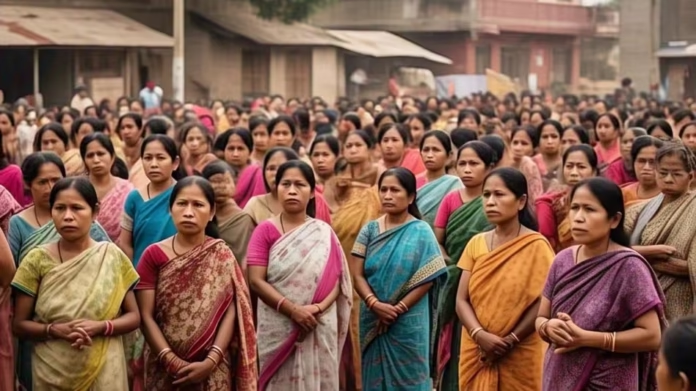Women in Tripura have made significant strides toward economic and social empowerment through self-help groups (SHGs). In 2022-23, more than 63,000 women joined these groups, gaining financial independence and business skills. These groups have provided them with opportunities to break free from economic dependency and create sustainable livelihoods. With structured training and financial support, many have launched successful enterprises, improving their quality of life.
SHGs in Tripura have focused on skill development, allowing women to explore various industries such as handicrafts, farming, tailoring, and food production. The availability of microloans and government assistance has helped them expand their businesses. Many women, who once had limited access to financial resources, now manage their ventures confidently. These initiatives have created employment opportunities within communities, strengthening local economies.
Financial illiteracy and social barriers previously prevented women from participating in entrepreneurial activities. SHGs have addressed these issues by conducting awareness programs on savings, investments, and digital transactions. Many members have opened bank accounts for the first time, enabling them to access formal financial services. This newfound knowledge has increased their financial security and reduced their dependence on moneylenders.
Entrepreneurship has not only improved women’s economic standing but also enhanced their social position. With financial independence, they have gained decision-making power in their households and communities. Many have become role models, inspiring others to pursue self-sufficiency. The confidence they have developed through SHG activities has encouraged them to participate in social and political discussions, amplifying their voices in public affairs.
Government and non-governmental organizations have played a crucial role in the success of these SHGs. They have facilitated training programs, provided financial aid, and promoted market linkages. Women-led enterprises have benefited from exhibitions and fairs, where they showcase and sell their products. These platforms have helped them reach wider audiences and expand their customer base.
Agriculture-based SHGs have introduced sustainable farming techniques that enhance productivity and ensure food security. Women engaged in organic farming have adopted eco-friendly practices, reducing reliance on chemical fertilizers and pesticides. Their produce has gained popularity in local markets, creating new business opportunities. Additionally, some SHGs have ventured into dairy farming and poultry, further diversifying their income sources.
Handicraft and textile SHGs have revived traditional art forms, preserving Tripura’s cultural heritage. Women have mastered weaving, embroidery, and bamboo craft, producing high-quality items that attract buyers from different regions. Online platforms have provided them with opportunities to sell their products beyond local markets, increasing their earnings and visibility.
The success of these SHGs has encouraged more women to join the movement. With continued support from stakeholders, the initiative is expected to expand further, reaching more women across the state. Future plans include advanced training in business management, digital marketing, and e-commerce to equip women with modern entrepreneurial skills.
Women involved in these groups have expressed gratitude for the opportunities they have received. Many have shared stories of how their financial independence has transformed their lives, allowing them to educate their children and improve their living conditions. Their success stories serve as powerful examples of how community-driven initiatives can bring meaningful change.
While challenges remain, including limited access to larger markets and competition from mass-produced goods, women in Tripura remain determined to grow their businesses. With resilience and perseverance, they continue to strengthen their economic position, proving that self-help groups are a powerful tool for empowerment. The journey of these 63,000 women highlights the transformative impact of collective effort and financial inclusion in building a more self-reliant society.




